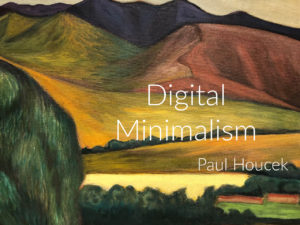
I have been challenged with the number of disk drives, drop box(es), Neat backups, and various laptops that I’ve had over the years. I owned a business for 5 years and the amount of digital clutter that I accumulated was overwhelming. The digital clutter wasn’t visible physically but was in the back of my mind all the time. I was able to tackle the paper hoarding by scanning all my documents and organizing them in a tool called Evernote but I had too many hard drives with information that I needed to go through. I wanted to highlight the process that I was able to use to successfully clear out my digital clutter.
The 1st thing that I needed to do was to set realistic expectations as to what I could accomplish each day. I tend to get overwhelmed very easily and literally stop working if the amount of data was too much. If I started to get frustrated, I ended up stopping and starting later in the day. The goal was to try to work on the files every day. I ended up organizing my work in the following way:
1) I determined what were the highest priority items to tackle first. For example, my business generated a significant number of files. Account Receivable statements, P&Ls, invoices, etc. The IRS only requires businesses to keep information for only 3 years with some exceptions (i.e. if you forgot to file a return, you are required to keep the returns for 7 years) My business was sold over 6 years ago and I decided to destroy all of the files. I did look for key files that I wanted to keep but I reduced 99% of the files.
2) I began to organize the files into file folders. It is much easier if you organize files immediately, but I had the downloads folder filled with unfiled files. It did mean that I had to open/preview the files, but it was the only way to determine which files I wanted to keep.
3) I re-formatted the extra hard drives after I moved files into a central location. I learned from Joshua Becker (www.becomingminimalist.com) to really challenge how many hard drives are necessary to live with. I always upgraded to the latest and greatest hard drives. I recommend that you have an offsite storage location just in case your home is damaged in any way as well as a backup in your home. I have a hard drive off my router that backups versions of my work every hour. It has been a lifesaver for me to go to a previous version of a file that I have been working on.
4) I also recommend that you challenge yourself if you are going to really use any files that you are keeping for the future. For example, I had all my dog’s vet bills, purchases, etc. in a file folder. I would never need these files and were only being kept for sentimental reasons. I have a ton of digital images of my dogs but didn’t need those files. I moved them into the trash bin.
5) Finally, I purge my trash bin so that those files cannot be retrieved again.
Purging files is a process but it is just as important that you organize the files immediately as soon as they are created or downloaded from the internet. I would recommend that have a directory structure that will work for you and focus on items that you really need to keep.
